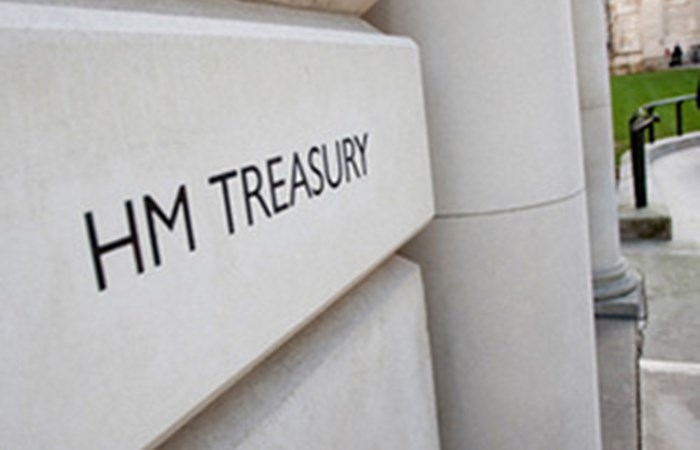HM Treasury

Britain must be prepared for ISIL to develop the capability for cyber warfare, Chancellor of the Exchequer George Osborne warned today in a major speech at GCHQ.
In the first address to be given by a Chancellor at the home of British intelligence, GCHQ in Cheltenham, Mr Osborne announced that he is prioritising security in his Spending Review next week, and paid tribute to the work of intelligence services in foiling plots against the UK.
He has committed to increasing spending on cyber security to 1.9 billion by 2020, 1,900 new staff across the three intelligence agencies and the first National Cyber Centre, which will be home to the countrys first dedicated cyber force.
The Chancellor, who chairs the governments committee on cyber, outlined details of a new National Cyber Security Plan, put together to ensure Britain can keep itself safe from a rising tide of attempted online attacks against business, infrastructure and individuals, and ensuring we remain at the cutting edge of the global cyber economy.
He argued that everyone individuals, businesses and the government must play their part in countering the growing threat from cyber attack. Britain must be prepared for hybrid conflicts, played out in cyberspace as well as on the battlefield.
Speaking from GCHQ, the Chancellor said:
As a nation determined to live within our means, we are facing painful choices, and the hardest of decisions. You will see that next week. But the Prime Minister, my colleagues at the top of government and I have decided that we have to make a top priority of cyber security, if Britain is to be able to defend itself, now and in the future.
Today I am announcing a plan to do precisely that. It is a bold, comprehensive programme that will give Britain the next generation of cyber security, and make Britain one of the safest places to do business on line. It will give our companies and our citizens confidence that their cyber-safety is being properly protected. It will ensure that Britain remains at the cutting edge of the global cyber economy.
In the Spending Review, I have made a provision to almost double our investment to protect Britain from cyber attack and develop our sovereign capabilities in cyberspace, totalling 1.9 billion over five years. If you add the spending on core cyber security capabilities government protecting our own networks and ensuring safe and secure online services, the governments total cyber spending will be more than 3.2 billion.
The National Cyber Security Plan includes:
A new National Cyber Centre
- Based at GCHQ in Cheltenham the new centre will house the countries first dedicated cyber force to handle cyber incidents in Britain, and ensure faster and more effective responses to major attacks. The centre will draw on GCHQs world-class expertise and work with international partners to help keep the UK protected against cyber-attacks.
A stronger Active Defence Programme, including:
-
Exploring whether internet service providers can work together, with government help, to divert more malware attacks and block bad addresses used against British internet users.
-
A renewed crackdown on cyber-criminals, with increased capabilities for the National Cyber Crime Unit.
A new Institute for Coding: Centre for Digital Skills and Computer Science
- To enable training of the nations next generation of coders, the government will launch a competition to attract joint collaborations between universities and business for a capital prize of 20 million focused on digital skills and computer science.
An ambitious new cyber skills programme
-
A new programme to build cyber skills for the future in Britain. This will include identifying young people with cyber talent and providing them with training, after-school expert mentoring sessions and paths into a variety of cyber careers.
-
New higher and degree level cyber apprenticeships focussed around protecting key sectors like finance and energy.
A stronger regulatory framework
-
Stronger regulation in sectors defined as Critical National Infrastructure.
-
Through the National Cyber Centre, a new programme of work with businesses across the economy to ensure that they have the right defences in place.
A stronger cyber sector
- Creation of a new Cyber Innovation Centre in Cheltenham to house cyber start-ups in their early months, giving them the best possible support and drawing on the cyber talent and resource in the South West.
The new National Cyber Security Strategy will be published in 2016.
